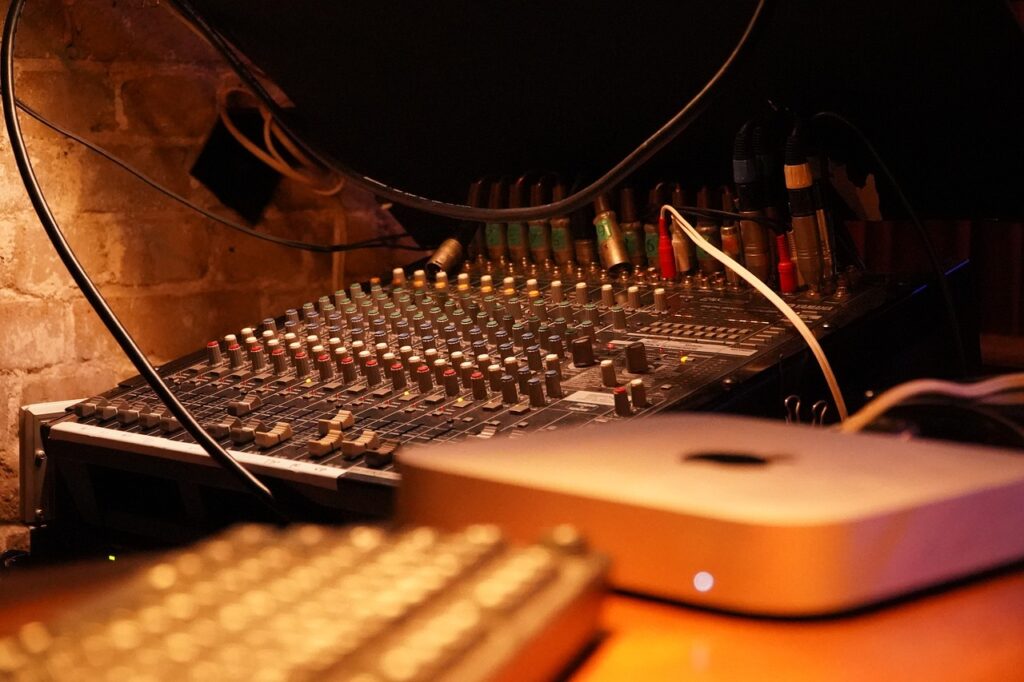Ever wanted to up your game in music creation? AI can be used to produce music in dynamic ways, such as generating melodies, creating harmonies, and even composing full songs. Machine learning makes it all possible.
If any of the below scenarios sound like you then you might want to try some of the selected AI option on this page below:
Music Scenarios
- Creative Inspiration: AI can serve as a source of creative inspiration for musicians and composers. Musicians can explore AI algorithms , to find new melodies, harmonies, and musical ideas that they may not have thought of on their own. AI can generate unique musical patterns, chord progressions. This also means rhythms, sparking fresh ideas and enabling musicians to push the boundaries of their creativity.
- Composition Assistance: AI can assist in the composition process by providing suggestions and augmenting human creativity. How does it work? Well musicians can input partial melodies or musical phrases into AI systems, which can then generate complementary sections or variations, This helps to expand and refine compositions. AI can analyze existing music styles, genres, and compositions to offer stylistically relevant suggestions. This helps musicians in the composition and arrangement stages.
- Customized Soundtracks: AI can be used to create customized soundtracks for various media applications such as films, games, and advertisements. Furthermore, by analysing visual or contextual cues, composers, filmmakers, & game developers can use AI algorithms to generate music that aligns with the mood, and atmosphere. This enables tailor-made music that enhances the overall experience and storytelling.
- Remixing and Sampling: AI-powered tools can facilitate the remixing and sampling of existing music. AI algorithms can separate the individual tracks or stems of a song, allowing musicians to isolate specific elements and manipulate them creatively. AI can also assist in generating new arrangements, remixes, or mashups by automatically matching and synchronizing different musical elements.
- Virtual Band or Orchestra: A full band or orchestraAI can be simulated by AI . This provides musicians with the experience of playing alongside virtual instrumentalists. Therefore can be particularly valuable for solo musicians or composers who want to hear their compositions realized with a full ensemble. Furthermore AI-based virtual instruments can replicate the sounds and nuances of various instruments. This allows musicians to create rich and dynamic musical compositions.
- Personalized Music Generation: AI can generate personalized music based on individual preferences, emotions, or contexts. By analyzing user data, such as listening habits, preferences, or physiological responses, AI algorithms can create music tailored to an individual’s taste or mood. This personalized music generation can be used for relaxation, focus, meditation, or enhancing specific emotional states.
- Experimental and Avant-garde Music: AI provides a platform for musicians to explore experimental and avant-garde musical ideas. AI algorithms can generate unconventional sounds, textures, and structures that push the boundaries of traditional music composition. This willl allow musicians to venture into unexplored sonic territories and experiment with unconventional musical concepts.
Voice Scenarios

- Voice Assistants: Companies developing voice assistants, such as Amazon Alexa, Google Assistant, Apple Siri, or Microsoft Cortana, utilize AI to generate natural and human-like voices. AI-powered voice generation enhances the user experience and enables voice assistants to communicate effectively.
- Audiobook Publishers: AI voice technology allows audiobook publishers to convert written text into audio format using realistic and expressive voices. It enables them to produce high-quality audiobooks more efficiently and at scale.
- Media and Entertainment: Voice generation AI can be employed in the media and entertainment industry for creating voice-overs, dubbing, and narration. It simplifies the process of adding voices to animations, movies, TV shows, and video games.
- Accessibility Services: AI-generated voice technology benefits individuals with speech impairments or disabilities that affect their ability to communicate. AI can provide synthesized voices that can be customized and personalized, allowing people to express themselves effectively.


